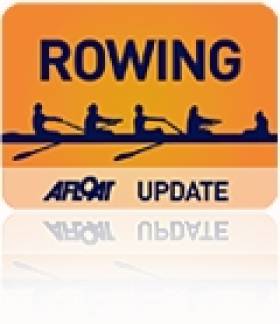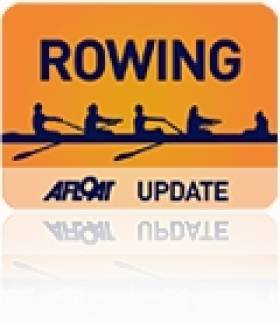Displaying items by tag: Jonathan Doyle
McDonald Sets New Ireland Indoor Rowing Record
#ROWING: Kenny McDonald, who is the world champion indoor rower in the 40 to 49 lightweight category, today set a new Irish record in this class. The Shannon Rowing Club man clocked six minutes 20.7 seconds in a special test at St Michael’s Rowing Club in Limerick. This knocked exactly a second off Philip Healy’s old mark. Jonathan Doyle, also competing today, set a time of 6:24.0. The world record, which belongs to Denmark’s Eskild Ebbesen, is 6:18.8.
#ROWING: Kenny McDonald, the world champion indoor rower in the 40 to 49 lightweight class, will launch a bid on Sunday to break the Irish and world records in this class. McDonald, of Shannon Rowing Club, and Dubliner Jonathan Doyle, the man he replaced as champion earlier this year, will take each other on at St Michael’s Rowing Club in Limerick at 1 p.m. The Irish record is 6:21.7, held by Philip Healy, and the world record time is 6:16.8. It was set in January at the European Championships in Copenhagen by five-time Olympic medallist Eskild Ebbesen.
McDonald, who is a garda and an instructor in the Garda College in Templemore, set a time of six minutes 24.5 seconds when he won his title in Boston in February, but felt he could have gone faster. “The race went well, it was nice to win it, (but) I was going out at the back of my mind to break the world record. It went well for 1200 metres but the wheels started to come off at that stage. The last 800 metres I lost the focus. I definitely had a faster time in me.”






























































